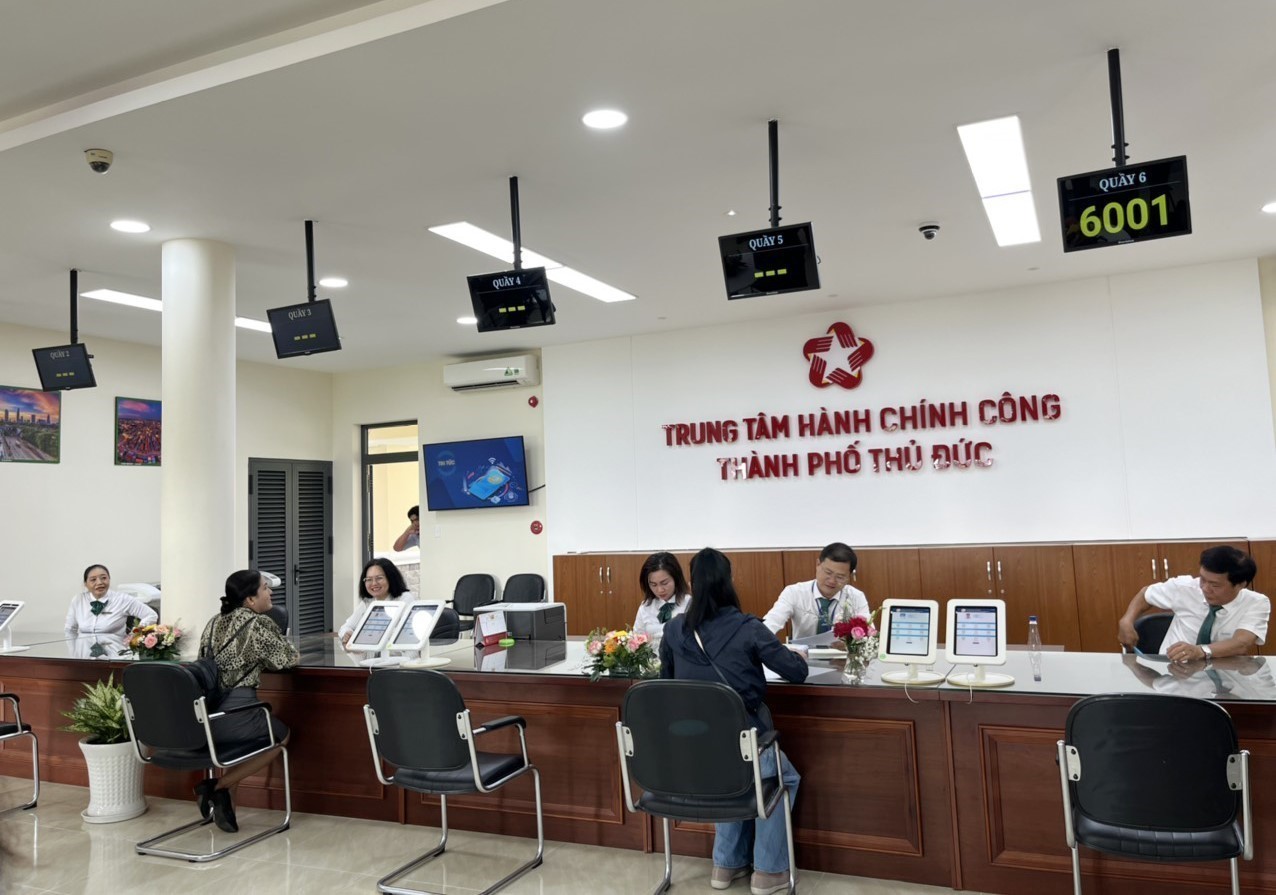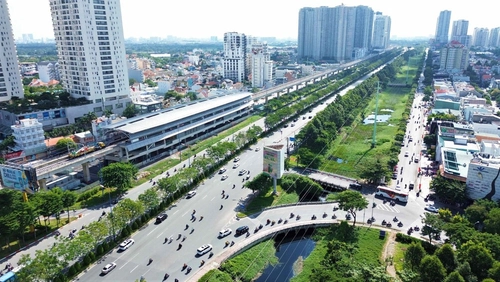The Government has issued a new resolution on the two-tier local administration model, calling on ministries and localities to streamline regulations and procedures to better serve citizens and boost socio-economic growth.
Resolution 268/NQ-CP sets out the Government’s plan to implement the two-tier local administration model, directing ministries and localities to overhaul regulations, cut procedural delays, and strengthen coordination to keep the system running smoothly and deliver faster, more efficient services to the public.
Institutional framework
The Government has ordered ministries, sectors and localities to conduct a comprehensive review of legal documents, particularly those on decentralization and delegation of powers, and to quickly fine-tune regulations guiding the two-tier model. The goal is to build a solid political and legal foundation that makes implementation at the local level both consistent and effective.
Ministers and heads of ministerial-level agencies are required to take the lead in clearing legal obstacles identified by the Central Steering Committee on Institutional and Legal Improvement. They must issue swift instructions to remove barriers that hinder the operation of two-tier local administrations, particularly those affecting key socio-economic projects, so localities can stay on track to meet their 2025 growth targets.
Administrative procedures at the grassroots level
The Government has stressed that the prompt settlement of administrative procedures for citizens and businesses must be treated as a top priority. Ministries, sectors and localities are urged to resolve procedures quickly, without delays or backlogs, since removing bottlenecks is seen as unlocking resources for development. Training and guidance, particularly at the commune level, must be maintained, while strict oversight is required to prevent new choke points.
Localities are also directed to apply the single-window and interconnected single-window mechanisms at public service centers in line with Decree 118/2025/ND-CP. The establishment of single-level and commune-level public service centers must comply with the Law on Organization of Local Administration.
Meanwhile, the Government Office is assigned to draft amendments to Decree 63/2010/ND-CP on administrative procedure control, aiming to ensure effective implementation of the 2025 Law on Promulgation of Legal Documents. The decree, set to be submitted to the Government in 2025, must ensure that only necessary, reasonable and lawful procedures remain, with the lowest possible compliance costs. Ministries and agencies are also required to promptly update the national database with any new, revised or abolished procedures.
The Ministry of Justice, for its part, must quickly issue uniform rules for levels of online public services in the authentication field, upgrade the civil status software system to ensure smooth data flow with provincial systems, and fix synchronization glitches so citizens’ civil status requests can be processed without delay.

Planning and land management
The Ministry of Construction is tasked with overseeing the rollout of Resolution 66.1/2025/NQ-CP, which addresses zoning challenges in urban areas affected by administrative restructuring under the two-tier model. Spatial development plans must be adjusted to fully harness each locality’s unique strengths, competitive advantages and emerging opportunities.
The Ministry of Finance is required to simplify the processes for approving adjustments to master plans of newly formed provinces and cities, ensuring local development needs are met without delay.
Meanwhile, the Ministry of Agriculture and Environment must issue detailed guidance on land recovery, allocation and lease under the Land Law; provide commune-level instructions on land-use planning in line with Decree 151/2025/ND-CP and Circular 23/2025/TT-BNNMT; and propose a unified land price framework after administrative mergers to serve as the basis for compensation and site clearance.
Organizational structure, staffing, and personnel
The Ministry of Home Affairs is directed to draft amendments on organizational structure, staffing, recruitment, evaluation and training, in line with new regulations of the Politburo, so that local authorities have a uniform framework to follow. It must also issue criteria and procedures for restructuring villages and residential groups, and provide guidance on arranging part-time personnel.
The ministry will coordinate with other agencies to clarify the functions and powers of public service units, allowing commune-level People’s Committees to adjust their structures accordingly. By September 2025, it is expected to submit new regulations on standards for administrative units, their classification, and the classification of urban areas.
In addition, ministries, sectors and localities are required to promptly fill vacant posts, while the Ministry of Home Affairs will develop detailed standards to guide the recruitment, rotation and appointment. Training programs with practical focus—especially in finance, law, IT and planning—will also be introduced, alongside online instructional materials to help grassroots officials handle procedures more effectively.
Financial resources
The Ministry of Finance will continue channeling central budget funds into infrastructure and official housing in newly established communes, wards and special administrative units, with priority given to mountainous and disadvantaged areas.
The ministry is also asked to work with other agencies to design tailored financing mechanisms for two-tier administrations in different area—urban, mountainous and island—so as to ensure more effective allocation and use of resources.
VLLF










